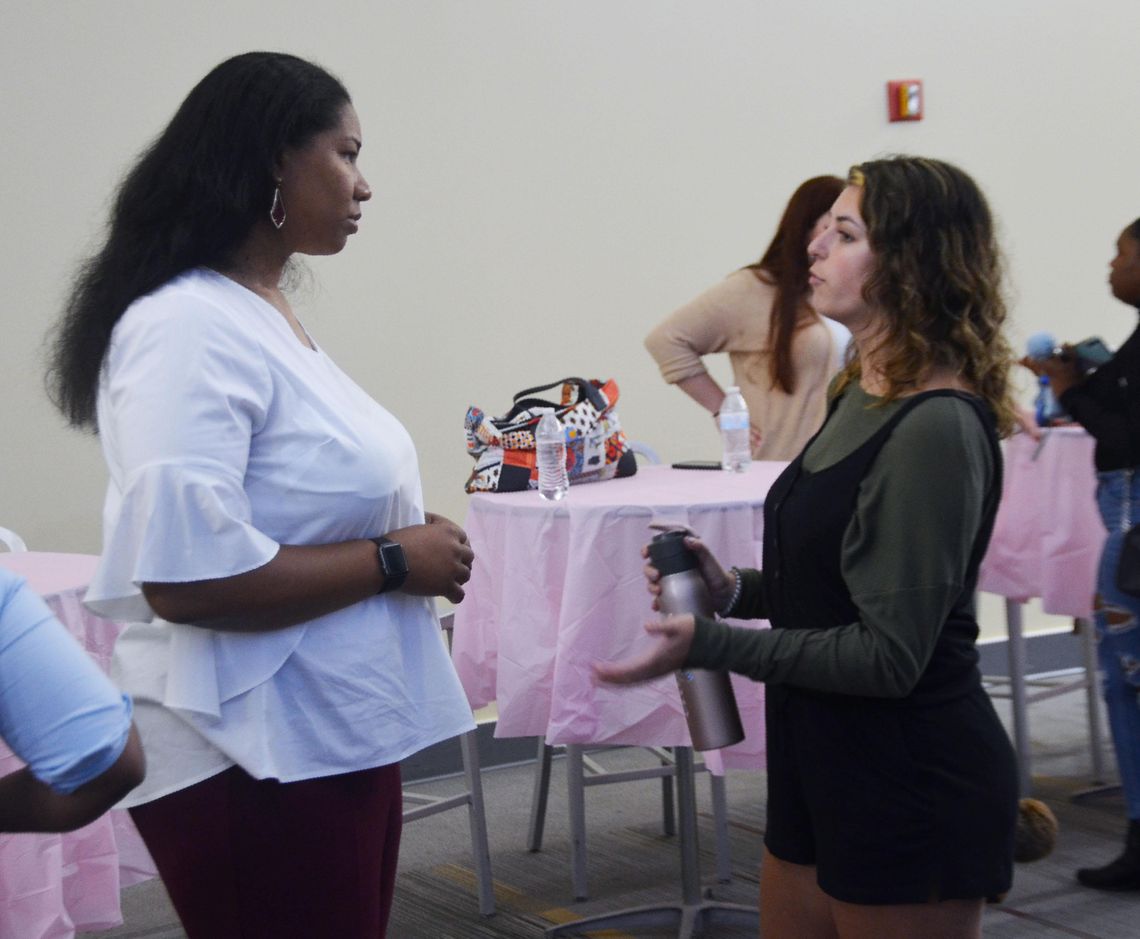Zenarae Antoine remembers a time when she didn’t see a role model that looked like her.
Antoine, a native of Katy who played basketball for James E. Taylor High School and Colorado State in the 1990s, grew up a Houston Rockets fan and had always looked up to All-Star center Hakeem Olajuwon. She’d heard of Lisa Leslie, one of the top women’s basketball players in the country at the time. But with no social media or live streaming and so few women’s games being televised at the time, Antoine could only really connect with Leslie by reading about her in the newspaper.
After graduating from Colorado State in 1998, Antoine began her coaching career and has now been the head women’s basketball coach at Texas State since 2011. It’s always been important to her to be visible to younger generations of women — she hopes they can take pride in seeing her lead the Bobcats on the sideline just as she takes pride in seeing someone like South Carolina and USA Women’s National Basketball head coach Dawn Staley lead her teams to two NCAA championships and an Olympic gold medal.
Antoine was the keynote speaker for a panel discussion on Women in Sports Leadership on Monday inside the J. Garland Warren Room at Bobcat Stadium — a panel that also featured Texas State Director of Football Operations Haleigh Blocker, Director of the Strutters Selina Flores, Director of the Athletic Academic Center Laurie Hindson, assistant women’s basketball coach Jericka Jenkins, Executive Senior Associate Athletics Director Tracy Shoemake, Associate Athletics Director of Compliance Kelsey Solis, head cheerleading coach Jocelyn Stephens, assistant volleyball coach Tori Plugge and Director of Women’s Basketball Operations Abigail Whitling.
“At some level, it’s our hope that we can truly inspire you,” Antoine said, addressing those in attendance. “For me now, I’m so thankful that we have all of these women behind me here to help talk and communicate with you about their journey. You have role models that look like you that are going to have similar experiences to you. And there’s nothing wrong with me appreciating Hakeem Olajuwon. I just think it would have been even more exciting for me if I had a woman in front of me that was a little bit more tangible in sports so I could understand.”
Antoine gave statistics on how women — and women of color, specifically — are the minority in almost every level of NCAA Division I athletics, whether the position is in coaching, support staff or administration. For instance, per the NCAA Demographics Database, out of 17,328 assistant coaches in the country in 2021, just 934 were Black women. Jenkins was one of the few.
“Coach Abi and I were joking at one point trying to figure out if there’s another black female assistant on campus. And it was a joke at first but then we really went through the staff directory and I’m the only one,” Jenkins said. “There are certain conversations that we need to have with a Black student-athlete that we wouldn’t necessarily have with another student-athlete. It’s just having someone that they can look up to.”
The panel members all discussed how they broke into the industry. Nearly every member of the panel didn’t visualize themselves having a career in sports until they were graduating from high school or college. Blocker emphasized starting as early as you can, even in a smaller role, to build connections.
Blocker grew up around sports all her life and knew she wanted to be a part of it as she was graduating from high school. When she arrived as a student at Texas State, she volunteered to intern for the football team, offering to help in any way that she could. Blocker worked with the team over next three years and graduated in May 2019 and was promoted to her current role soon after by incoming head football coach Jake Spavital.
“Before I knew Coach Spavital was going to be here, I sent out probably 200 emails to just people in recruiting and operations right before I graduated,” Blocker said. “And it wasn’t asking for a job, but it was just asking for advice and asking how they got to where they are because I just wanted to learn. And you’ll find that people do want to help you. You know, they want to see women succeed. So probably 15 people responded out of the 200, so the ratio wasn’t great, but those 15 people are now my mentors and my peers.”
The panel hoped that events like Monday’s would encourage others to pursue the profession.
“It’s be one, bring one. So if I’m a women’s leader, I’m gonna bring at least one person with me. I’m lucky, I think I’ve brought a few more than one,” Shoemake said. “And I’ll continue to do that because it’s very important to me to have women in this field. But I also preach that with my male co-workers as well. It makes a big difference Our student-athletes notice, our student-athletes want to see female leaders. And so that’s been an important mission of mine for the 18 years that I’ve been here at Texas State.”









